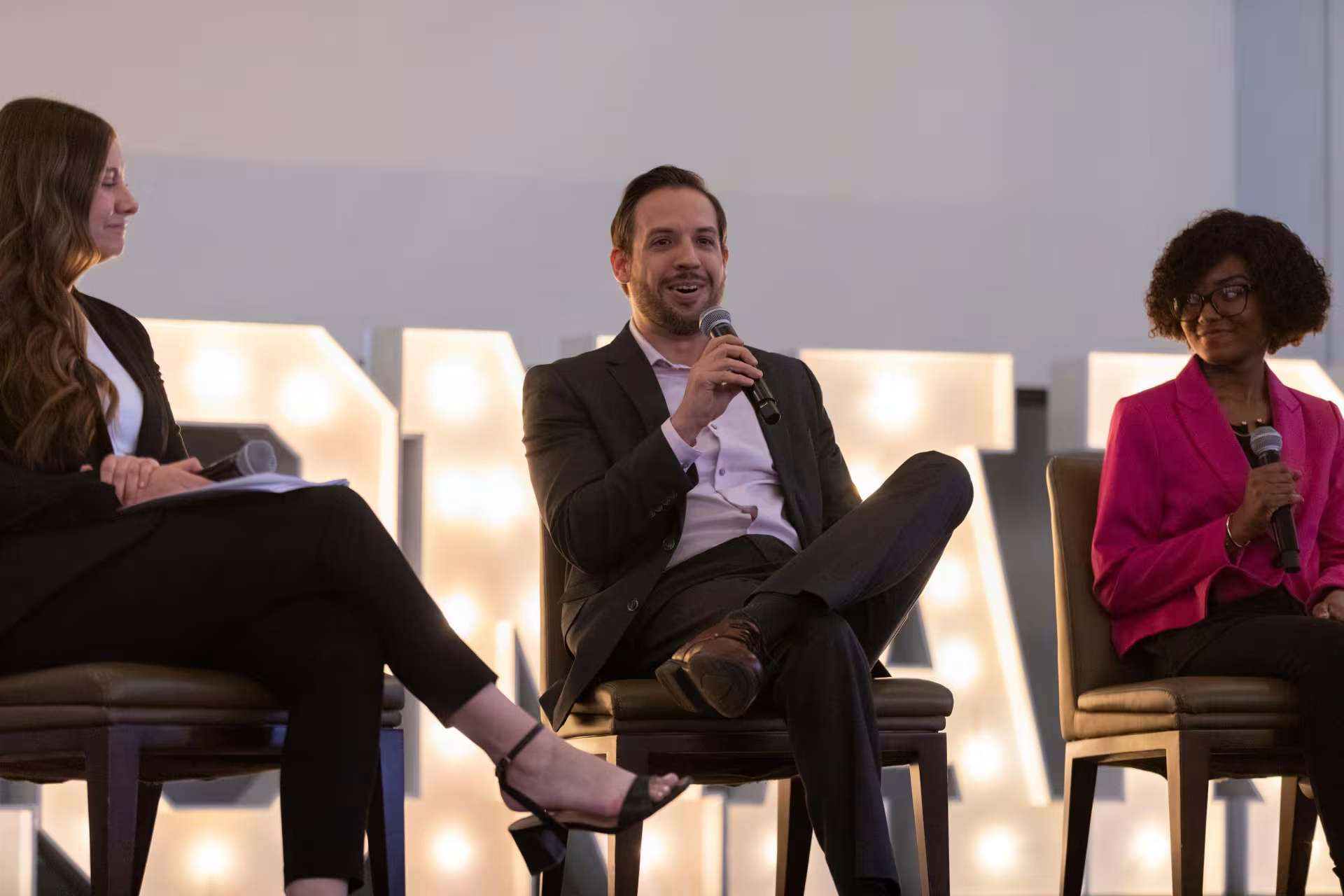Organizational leadership refers to the skills, qualities and activities necessary to lead a department or an entire organization (whether corporate or nonprofit).(See disclaimer 1) If there is one constant in business, it’s that change is inevitable. Markets fluctuate, consumer trends shift and companies pivot to keep up. Organizational leaders, who may hold a wide range of job titles, are individuals who shepherd their organization through changes, providing a consistent hand on the helm.
What is organizational leadership and what are organizational leadership careers you might consider pursuing? Explore its definition and some examples and consider some careers you may wish to pursue.
Organizational Leadership: Examples and Definition
Leaders at every level of an organization may establish a strategic vision, create a positive work culture and inspire and motivate employees to achieve organizational objectives.
Organizational leaders do not find themselves in narrow careers. Instead, their work involves many different people and is spread throughout a company’s departments. Their work may engage them with people outside the company as well as inside it, including partners and competitors.
Organizational leaders tend to focus on policies and people. They typically aim to create environments in which employees are effective and productive in meeting organizational goals.
A leader trained in organizational leadership may determine that a shift in the company’s direction requires employees to develop new skills. They can identify and implement professional development opportunities for the team to meet the need.
Why Is Organizational Leadership Important for Businesses?
Organizational leadership is critical for all types of businesses for several reasons. Effective leaders can motivate their team, which helps keep employees engaged, productive and satisfied at work. This can also help boost team morale.(See disclaimer 1)
Other reasons why organizational leadership is important for business:(See disclaimer 1)
Do I Need an EdD To Be a Leader in an Organization?
There are organizational leaders at all levels of an entity — from the departmental level up to the C-suite. Job requirements will vary considerably depending on the exact position and the company. In general, however, it’s not necessary to hold a Doctor of Education (EdD) in Organizational Leadership to pursue these types of positions; even top executives typically only need a bachelor’s or a master’s degree.(See disclaimer 2)
However, if you’d like to take a deep dive into organizational leadership competencies, then perhaps you might consider earning a relevant EdD. You might also go back to school to potentially help you in the job marketplace. An EdD could certainly add more weight to your resume.
What Skills Are Taught in an EdD in Organizational Leadership Program?
An EdD that focuses on organizational leadership may explore a range of business competencies, such as organizational theory and structure. In addition to covering an array of academic concepts, a doctoral program in organizational leadership teaches essential soft skills.
While different degree programs will have varying curricula, these types of degrees generally teach skills such as:
Learners may find that some of the skills taught are immediately applicable in the workplace. They may continue to enjoy opportunities for skills refinement throughout their professional career.
Like with any doctoral program, students will end their studies with a dissertation. A dissertation is a substantial research project which gives students the opportunity to learn about and engage in areas they are interested in. This will be your chance to prove you can design and undertake gathering and analysis of complex information.
Organizational Leadership Careers in Various Industries
A career in organizational leadership isn’t limited to any one industry. Since all types of organizations need leaders, it’s possible to pursue positions virtually anywhere. When finding an ideal industry for you, consider your other interests and skills.
You may discover that one of the following industries may suit your career interests:
What Are Organizational Leadership Careers?
Even across industries, organizational leadership careers are highly varied. Some examples of careers related to leadership may include:
Management Analyst
Management analysts work as consultants. They are brought on by a business to increase the organization's efficiency and profitability. Management analysts spend time interviewing employees and managers and observing meetings or people working. They create reports and presentations about what they see and suggest changes intended to make the business more successful.
Project Coordinators
Project coordinators or managers plan, supervise and ensure the execution of specific projects. They make sure tasks are completed on time and help employees manage the workload involved in meeting their goals.
A project coordinator also ensures that the product or project is completed according to criteria set at the beginning of the work. They must bring their team together and motivate the individual members to reach their full potential to make positive contributions to the project.
Departmental Managers
Managers oversee a team and are responsible for the products and services the team delivers. They help ensure that their team works toward overall company goals in an efficient way. The different departments of a business will typically have different needs and types of leaders.
For example, sales managers might work with their internal team as well as external clients. Production managers ensure that the daily operations of manufacturing plants and teams continue efficiently. Human resources managers are responsible for recruiting and onboarding new employees, performance assessments and managing employee benefits.
CEOs
The chief executive officer (CEO) of a business organization is its top leader. The CEO sets the vision and culture for a team and manages the managers or a higher-level executive team. The CEO sets the standards for the business and needs to have excellent problem-solving, decision-making and leadership skills to be effective.(See disclaimer 2)
HR Manager
A human resources manager is responsible for leading the HR department. They plan, implement and oversee the fundamental activities of the department — from recruiting, interviewing and hiring to handling staffing issues like disciplinary procedures. HR managers are also typically responsible for overseeing employee benefits and professional development programs and for coordinating matters pertaining to the HR function with top executives.
Discover Organizational Leadership at GCU
Grand Canyon University welcomes current and aspiring leaders to explore our many organizational leadership programs at the doctoral level. Specialize in business, healthcare, education or ministry and hone your skills in servant leadership and business ethics. Complete the form on this page to get started today.






